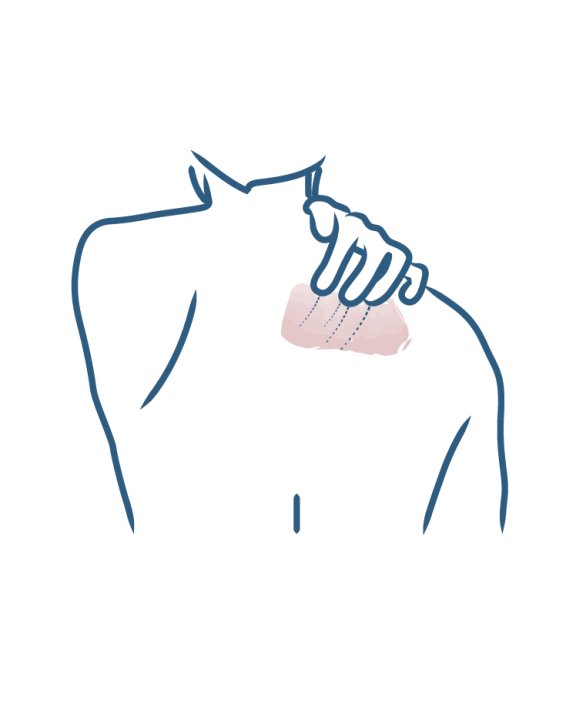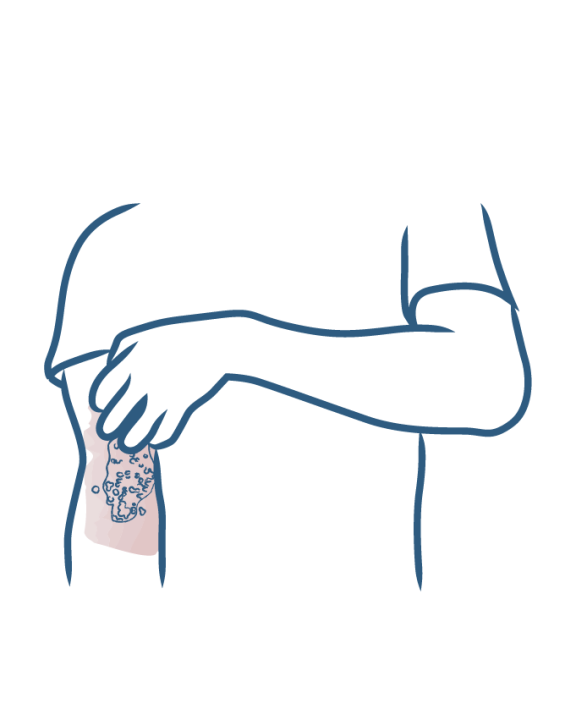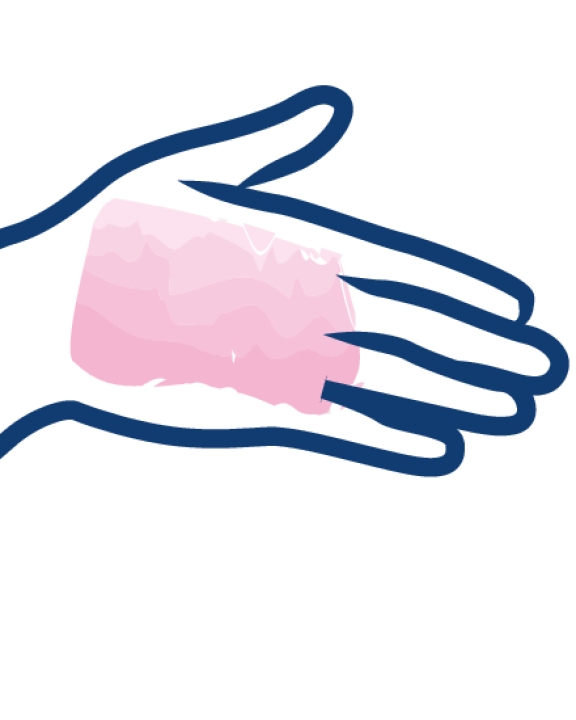Body eczema: hands, feet, arms, back, face, etc.
- SUMMARY
- Eczema
Hand and finger eczema (chronic hand eczema)
- Living with eczema day to day
- What are the habits to avoid when you have eczema?
- Eczema cream, ointment: what should you use?
- What soap should be used for eczema?
- Swimming pool, swimming when you have eczema?
- Eczema: can it be cured?
- Eczema: how to treat itching
- Eczema: what foods should you eat?
- Eczema: What daily reflexes should you adopt?
- Which detergent should eczema patients use?
- Eczema: how can flare-ups be avoided?
- What causes eczema?
- Clothing contact eczema
- Perspiration-induced eczema
- Contact eczema due to cosmetics
- Contact eczema due to medication and topical treatments
- Hereditary eczema
- Contact eczema due to cleaning products
- Contact eczema due to nickel and chromium
- Allergy-induced eczema
- Stress-induced eczema
- Body eczema: hands, feet, arms, back, face, etc.
- Arm eczema (elbows, armpits, forearms)
- Foot eczema
- Eczema in the ears
- Scalp eczema
- Eczema on the back
- Eczema on the stomach and belly button
- Eczema around the mouth
- Leg eczema or varicose eczema
- Eczema of the eyelids, eyes or palpebral eczema
- Eczema on the neck and nape of the neck
- Facial eczema
- Hand and finger eczema (chronic hand eczema)
- What is infantile eczema?
- Eczema in babies: what habits should you adopt?
- How should you treat baby’s and infant’s eczema?
- When should you consult a physician about your baby's eczema?
- Cortisone cream to relieve eczema?
- What soap should be used for babies with eczema?
- Eczema in babies and children: the areas most often affected

Hand and finger eczema (chronic hand eczema)
Hand eczema is a particularly embarrassing and painful form of eczema because the hands are a highly visible and used part of the body.
The causes of hand eczema
Hand eczema can take many forms: blisters, cracks, fissures, skin thickening, redness, etc. It can affect several areas such as the top of the hand, the palm or fingertips. It is often referred to as chronic hand eczema because the disease persists over time and alternates between flare-ups and remissions.
Hand eczema is sometimes associated with foot eczema . Dyshidrotic eczema is a particular form of hand and foot eczema. The skin becomes covered with small blisters or bubbles. The itching is often intense.
What causes hand eczema?
The causes of hand eczema are varied. Irritation is the primary agent responsible for hand eczema. It includes several aspects that tend to accumulate in the same person depending on their lifestyle:
- aggressive chemicals such as detergents, soaps, etc.
- humidity due to overly frequent washing, poor wiping or maceration phenomena
- cold
- repeated traumas such as rubbing, scraping, tearing of skin, etc.
It is readily understood that certain occupations are at greater risk of hand eczema than others, particularly the manual trades: hairdressers, florists, cleaning staff, construction workers, healthcare professions, etc.
Other causes can be associated with hand eczema, such as:
- An atopic background: in adults, atopic dermatitis of the hands is sometimes the last remaining symptom of atopic dermatitis that began in childhood;
- A contact allergy: allergy to a metal, a fragrance, a dye, etc.
What are the consequences of hand eczema?
Hand eczema disrupts relationships with others: it's difficult to shake hands in the case of palm eczema and difficult to walk around "hand in hand" in the case of finger eczema or eczema between the fingers. The discomfort and shame can be very intense.
In some cases, hand eczema is so severe that a career change is necessary. Hand eczema can thus have a major impact on the patient's daily life.
What is the best treatment for hand eczema?
The management of hand eczema is initially based on the application of a cortisone cream to quickly regain healthy hands. Thereafter, an emollient must be applied daily to limit recurrences. Aggravating factors must also be tracked down.
To optimize the efficacy of the local treatment, apply a good layer of cream and then wear a cotton glove over your eczema. This glove must remain in place all night long to promote the penetration of the active ingredients and repair the skin while you sleep.
- Discover Facial eczema
Body eczema: hands, feet, arms, back, face, etc.
Facial eczema
- Discover Eczema on the stomach and belly button
Body eczema: hands, feet, arms, back, face, etc.
Eczema on the stomach and belly button
- Discover Eczema on the back
Body eczema: hands, feet, arms, back, face, etc.
Eczema on the back
- Discover Scalp eczema
Body eczema: hands, feet, arms, back, face, etc.
Scalp eczema
- Discover Eczema on the neck and nape of the neck
Body eczema: hands, feet, arms, back, face, etc.
Eczema on the neck and nape of the neck
- Discover Leg eczema or varicose eczema
Body eczema: hands, feet, arms, back, face, etc.
Leg eczema or varicose eczema
- Discover Eczema around the mouth
Body eczema: hands, feet, arms, back, face, etc.
Eczema around the mouth
- Discover Foot eczema
Body eczema: hands, feet, arms, back, face, etc.
Foot eczema
- Discover Arm eczema (elbows, armpits, forearms)
Body eczema: hands, feet, arms, back, face, etc.
Arm eczema (elbows, armpits, forearms)
- Discover Eczema of the eyelids, eyes or palpebral eczema
Body eczema: hands, feet, arms, back, face, etc.
Eczema of the eyelids, eyes or palpebral eczema
Our care routines
Skin prone to atopic eczema, contact eczema, chronic eczema and/or, eyelid eczema
Dermatological expertise
To better understand your skin and hair, discover our exclusive content and innovative care products designed to improve your quality of life..





